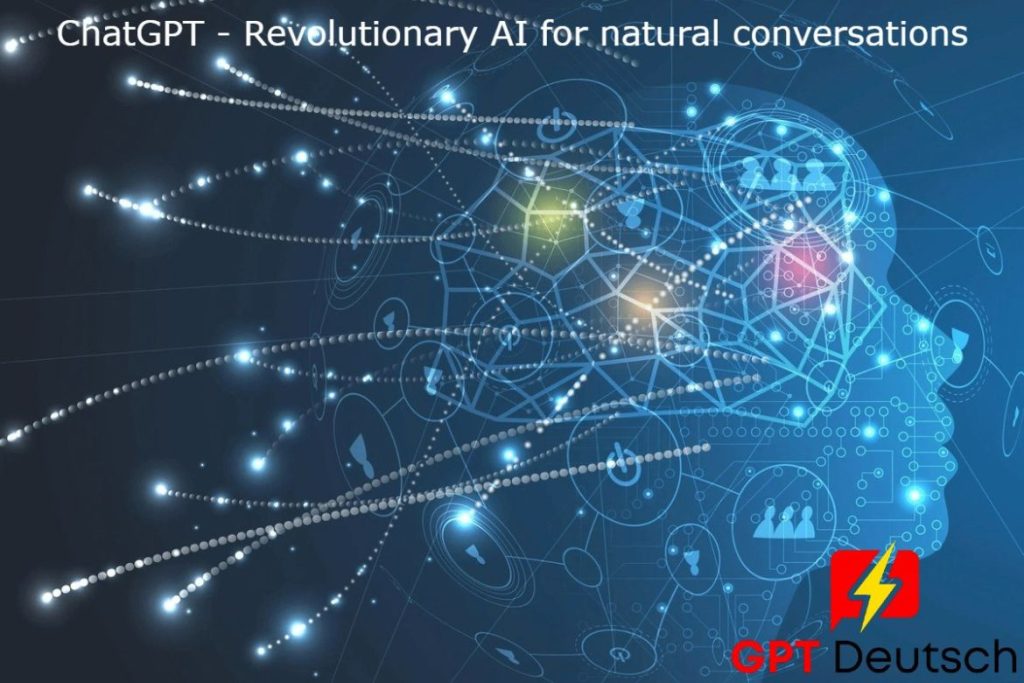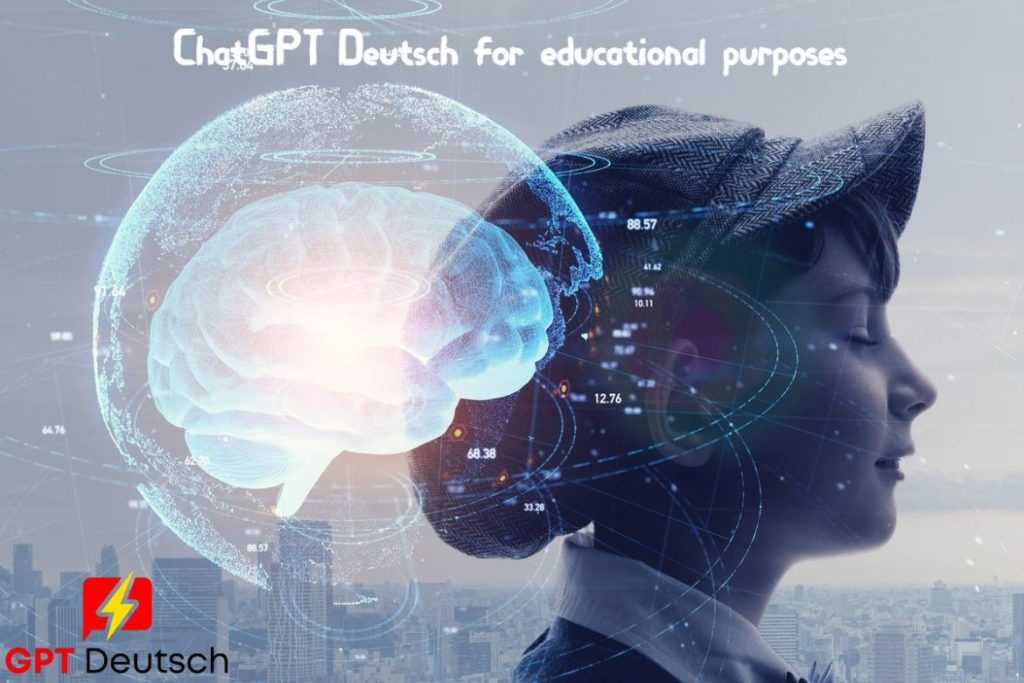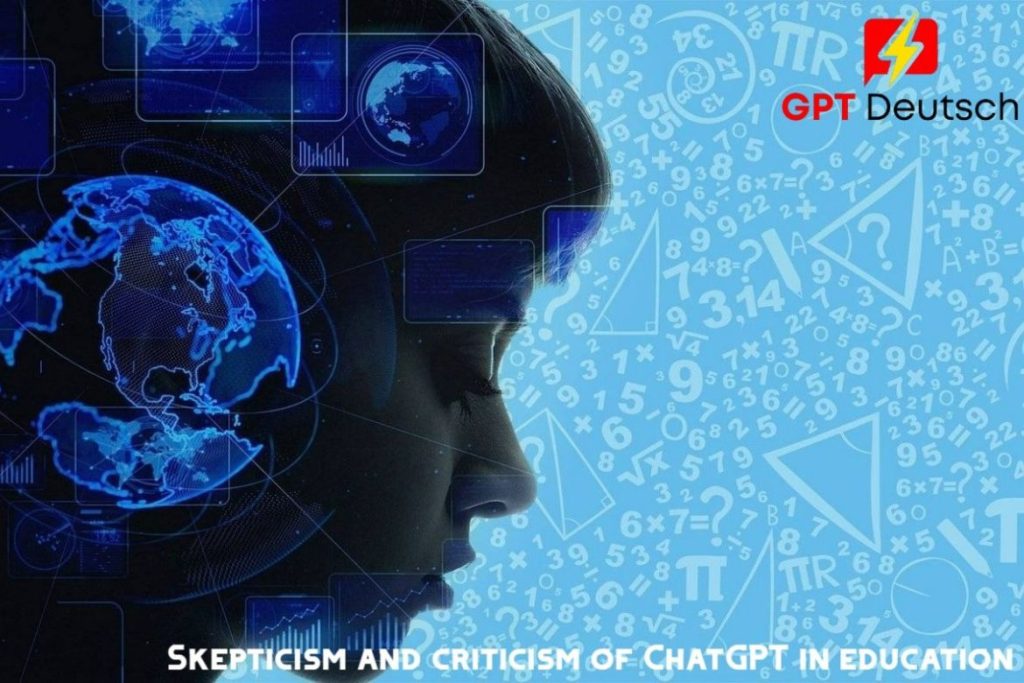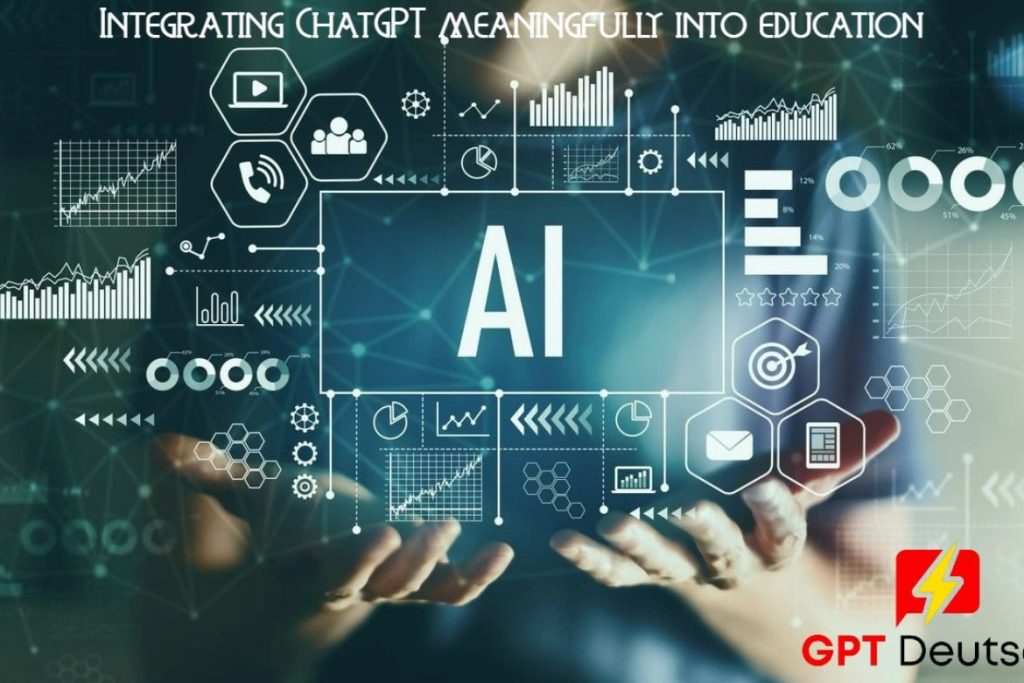The artificial intelligence ChatGPT is currently causing a stir in the educational landscape. The German-language version of the text generator brings new possibilities but also challenges for students, teachers and educational institutions. In this article, we shed light on how ChatGPT Deutsch could change learning and teaching.
Table of Contents
ChatGPT – Revolutionary AI for natural conversations
ChatGPT is an AI application developed by the US company OpenAI. Using machine learning, ChatGPT is able to conduct natural conversations at a high linguistic level.
Unlike conventional chatbots, ChatGPT understands complex questions and can provide detailed answers. The AI was trained with an enormous amount of text data and is therefore able to make connections and derive new knowledge. Since its release in late 2022, ChatGPT has surprised the public with its impressive abilities. From creating literary texts to programming code – the possible applications seem enormous.

ChatGPT Deutsch for educational purposes
In the meantime, ChatGPT is also available in a German-language version. This makes the revolutionary AI technology relevant for the education sector in Germany, Austria and Switzerland.
Students, pupils and teachers are already testing ChatGPT Deutsch. The feedback is overwhelmingly positive. In particular, the quick and comprehensive answers to complex questions are praised.
Learning support
For students and pupils, ChatGPT Deutsch can be a great help in learning. The AI can provide explanations for difficult topics, clearly outline contexts and respond to inquiries.
According to initial feedback, weaker students in particular benefit from the individual and patient support provided by ChatGPT. The AI can also provide useful assistance with writing essays or presentations.
However, critics point out that reliance on ChatGPT could undermine independent learning and critical thinking. If students rely too heavily on AI, important skills may be lost.
Efficient class preparation
ChatGPT also opens up new possibilities for teachers. The AI can support class preparation by summarizing explanations of new topics or generating sample exercises, for example.
Teachers can ask ChatGPT questions about class content and quickly find out where understanding problems might arise. Targeted explanations and exercises can be developed based on this.
Individual support for students is also simplified by ChatGPT. The AI can provide further information and examples on topics that are still unclear to a student upon request.
Personalized learning
Overall, ChatGPT Deutsch enables personalized learning tailored to the needs of individual students through individualized responses.
According to experts, the education system must embrace and integrate this change instead of just dismissing AI applications like ChatGPT as cheating attempts. The potential for personalized and individualized learning is said to be enormous.

Skepticism and criticism of ChatGPT in education
Despite the promising possibilities, there is also skepticism and criticism about the use of ChatGPT Deutsch in education.
Erroneous information
Since ChatGPT is based on existing data sources, there is a risk that the AI reproduces outdated, incorrect or misleading information. Teachers must therefore carefully review the AI’s output before using it in class.
Loss of critical skills
If students abuse ChatGPT as an answering machine, this could undermine the critical approach to knowledge. Instead of researching and questioning content themselves, AI answers are simply adopted. This contradicts the educational mission.
Unclear source references
Since ChatGPT compiles its answers from countless sources, correct source referencing is usually not possible. Thus, texts and content are created without a clear origin of the information. This contradicts the scientific standards in education.
Automatic text creation
The potential misuse of ChatGPT for automatically generating essays, presentations or theses causes the most concern. Numerous educational institutions have already reacted by banning or restricting the use of ChatGPT.
Plagiarism and cheating attempts
Texts generated by ChatGPT are increasingly considered plagiarism. There is already software that can reliably identify ChatGPT texts. Nevertheless, some students have tried to misuse the AI for cheating attempts.

Integrating ChatGPT meaningfully into education
Despite all reservations, many educators remain open to ChatGPT. However, meaningful integration of AI into everyday learning is important.
As a supplement, not a replacement
ChatGPT should complement rather than replace teachers and textbooks. The AI can provide individual explanations but cannot take over curriculum instruction. Use should be targeted and thoughtful.
Critical and responsible use
Students need to learn how to use ChatGPT and other AI responsibly. They should question whether the AI answers are correct and relevant. Dealing critically with digital tools should be addressed in the classroom.
Clear rules and guidelines
Schools and universities need to establish clear rules about what is allowed and what is not. This includes guidelines for citing sources and consequences for cheating attempts. Only in this way can ChatGPT be used fairly and productively.
Weigh opportunities and risks
Instead of demonizing ChatGPT altogether, teachers should carefully consider the opportunities and risks. In some cases, the benefits clearly outweigh the risks, while caution is advisable in other areas. Openness and foresight are required.

Conclusion: Great potential for responsible use
ChatGPT Deutsch opens up new possibilities for personalized and individualized learning. The AI can make teaching more efficient and illustrative. However, critical and thoughtful use by teachers and responsible use by students are prerequisites.
Despite all the enthusiasm, risks such as plagiarism, uncritical use and loss of skills should not be overlooked. With clear rules and guidelines, however, ChatGPT can be productively integrated into everyday school life.
If teachers and learners take into account the strengths and weaknesses of AI, ChatGPT Deutsch can unlock great potential for the further development of the education system. The coming months will show whether and how the German education system will take up this challenge.